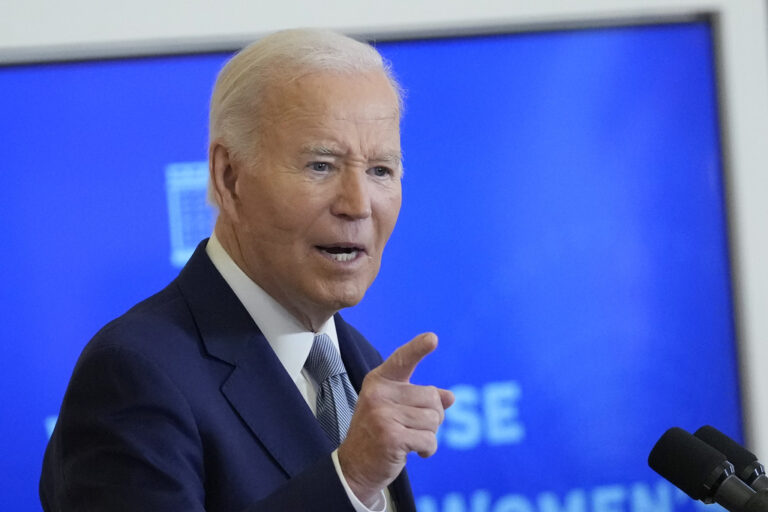 Democrats are planning an extensive review of what went wrong in the 2014 and 2010 elections, hoping to find ways to translate success in presidential campaigns into future midterm contests.
Democrats are planning an extensive review of what went wrong in the 2014 and 2010 elections, hoping to find ways to translate success in presidential campaigns into future midterm contests.
A party committee will conduct a “top-to-bottom assessment” of the Democrats’ performance in recent midterm elections and try to determine why they have struggled to turn out its core voters in nonpresidential elections.
“It’s apparent that there are increasingly two separate electorates: a midterm electorate and a presidential electorate. We win one and we don’t seem to be able to win the other,” said Florida Rep. Debbie Wasserman Schultz, who leads the Democratic National Committee, in an interview Saturday. “That is a fundamental dynamic that we have to change.”
Democrats suffered heavy losses in last week’s elections, ceding Senate control to the Republicans and surrendering more seats in the already GOP-majority House as Republicans ran against an unpopular President Barack Obama.
Republicans picked up governor’s offices in a number of Democratic-leaning states like Massachusetts, Maryland and Illinois and strengthened their grip on state legislatures.
Democrats have been successful in turning out an Obama-led coalition of minorities, women and young voters in presidential elections, but have struggled in midterm races when turnout is lower and the electorate tends to be older and whiter, favoring Republicans.
Wasserman Schultz said the new committee, whose membership will be announced in the coming weeks, will look at the party’s tactics, messaging, get-out-the-vote operations and digital efforts in recent nonpresidential elections. The group plans to report back in February at the DNC’s winter meeting.
Republican National Committee spokeswoman Kirsten Kukowski said last week’s elections underscored GOP momentum.
“When Republicans came to the table and played their game, they lost and that’s a problem,” Kukowski said. “We have said from the beginning that Obama 2012 wasn’t the standard for us. The midterms showed that and we are going to keep building on our successes.”
The DNC’s postelection review has parallels to a postmortem that Republicans conducted after Mitt Romney was defeated by Obama in the 2012 presidential election.
The report urged Republicans to shift its focus to year-round, on-the-ground political organizing in the states and recommended that the GOP embrace a comprehensive immigration overhaul. That recommendation quickly hit resistance from congressional Republicans who rely on primary voters who oppose creating a path to citizenship for immigrants living illegally in the U.S.
“Our party has a problem,” Wasserman Schultz said in a video announcing the project. “We know we’re right on the issues. The American people believe in the causes we’re fighting for. But the electoral success we have when our presidential nominee is able to make a case to the country as a whole, doesn’t translate in other elections. That’s why we lost in 2010, and it’s why we lost on Tuesday.”
Wasserman Schultz said she discussed the need for a review with Obama on election night and both agreed on the need to move forward. She also spoke about her plans Saturday with Rep. Nancy Pelosi of California and Sen. Harry Reid of Nevada, the party’s leaders in Congress.
“We need to understand everything that went wrong so that we can address all the potential problems and prepare for future elections,” she said.
(AP)











3 Responses
Review their misguided leftist policies? Never happen! Review how they failed to con the public or that their scare tactics didn’t work? Absolutely!
Former Vermont Governor Howard Dean believes Democrats suffered a bad midterm election because they lacked a clear message. “Where the hell is the Democratic party?” he asked on NBC’s Meet the Press Sunday. “You’ve got to stand for something if you want to win.”
Dean criticized Washington Democrats for never being able to stay on message, agreeing with Rep. James Clyburn, D-S.C., who said his party did not do a good job communicating what President Obama has done.
“The Republican message was, ‘We’re not Obama.’ No substance whatsoever,” Dean said. But after rhetorically asking himself the message from Democrats, Dean answered sarcastically “Oh, well, we’re really not either.”..
By Greg Sargent November 7
This week’s electoral rout of Democrats may indicate that the party doesn’t just have an economic problem. It may have a cultural problem, too.
As Ron Brownstein explains in a new analysis of the results, they revealed once again that the coalition that is powering Democratic victories in national elections cannot be relied on to show up in Congressional elections:
Democrats remain dangerously dependent on a boom-and-bust coalition of young people and minorities, whose turnout is much lower in midterms than in presidential elections….Democrats performed almost exactly as well with millennial voters (including whites) and most minorities as they did in 2010…But the share of the vote cast by those under 30 was 6 percentage points less in 2014 than in 2012; the minority share dropped 3 points. On both fronts, the pattern exactly followed the sharp falloff from 2008 to 2010, despite this year’s huge Democratic investment in turnout.
That suggests Democrats cannot compete for Congress without more support from middle-class and older whites….Democrats again have shown they cannot win enough whites to consistently hold Congress.
As I’ve reported, Democratic pollsters believe the inability to win enough working, middle class, and older whites is partly due to the Dem failure to address anxieties rooted in stagnating wages. But today Michael Gerson suggests there’s a cultural component as well:
Democrats need to contend for rural and small-town voters, for older voters, for working-class white voters,..
This requires not just a populist economic message (which is important) but the recognition of a set of values — a predisposition toward social order, family and faith — that is foreign to most liberal bloggers and Democratic strategists.